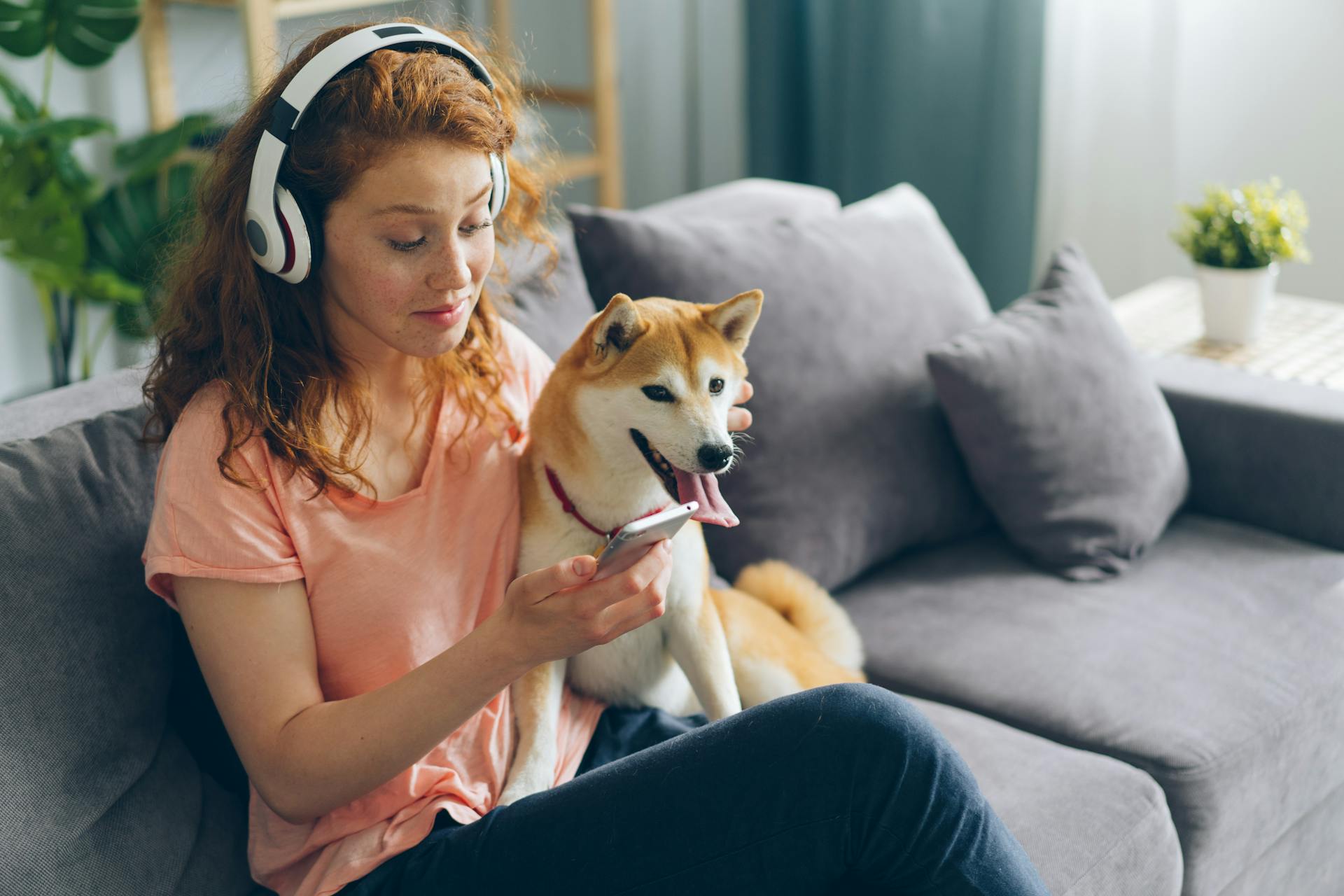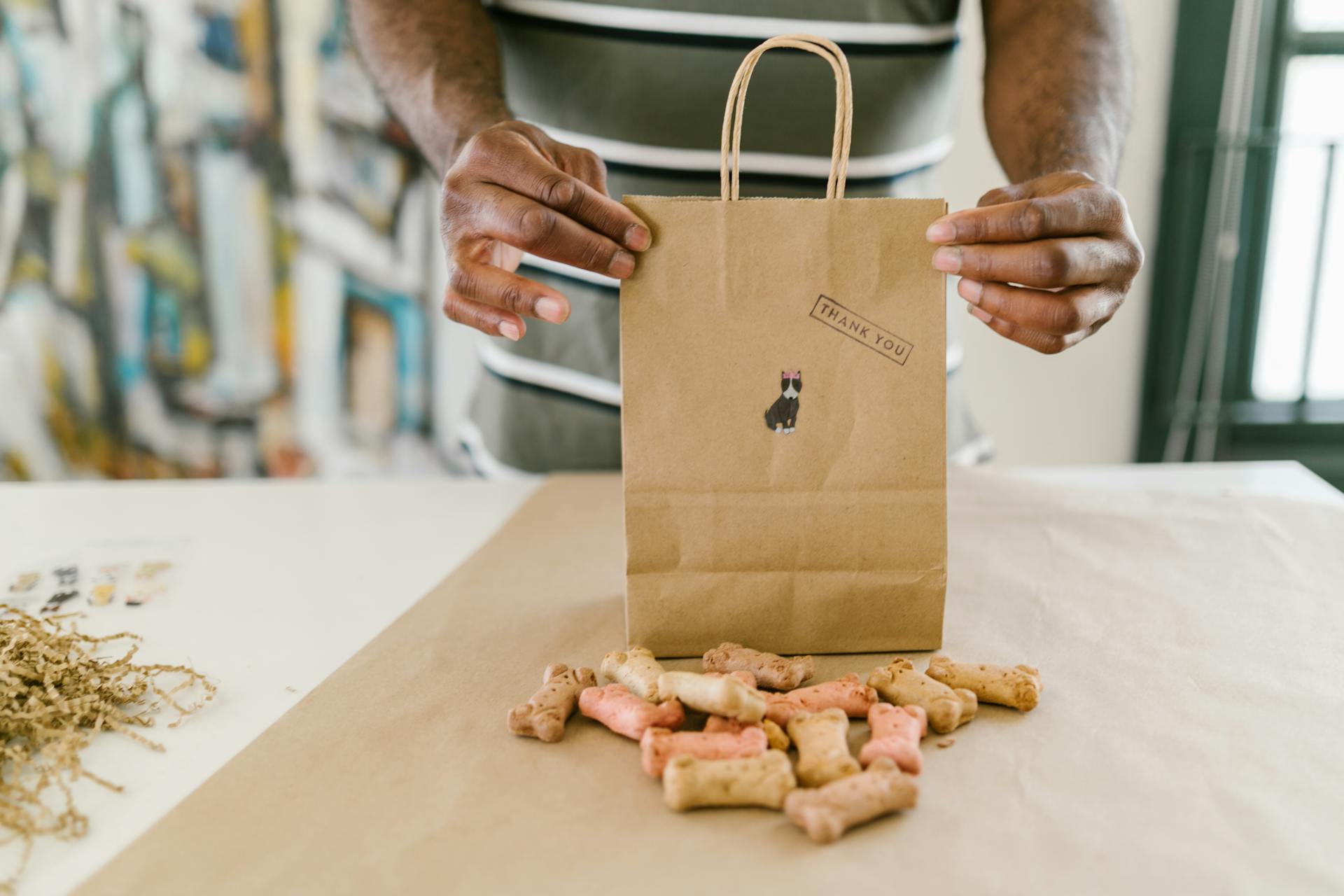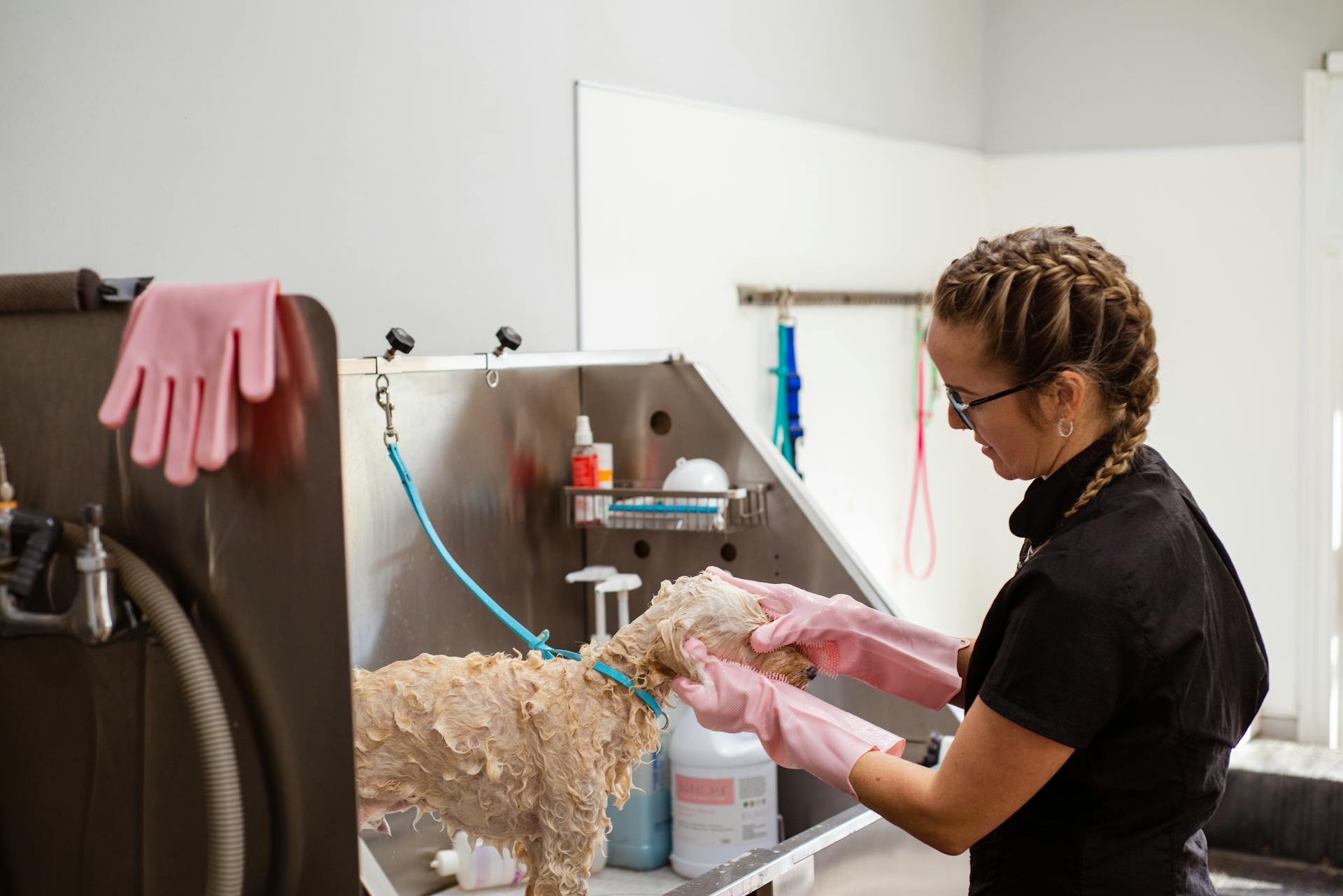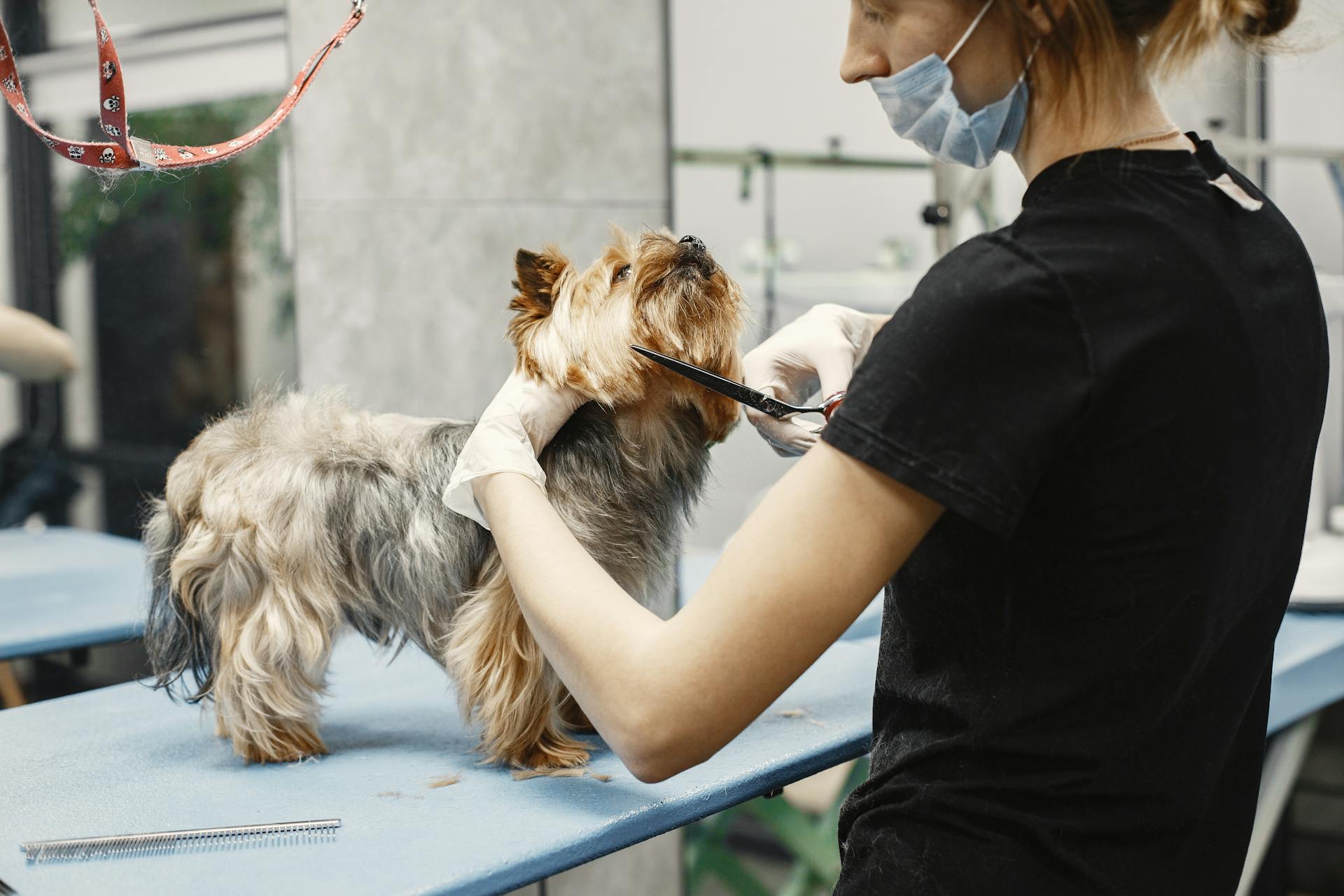
Shiba Inus are often stereotyped as being stubborn, but is this reputation well-deserved?
Shiba Inus can be strong-willed and independent, which may lead to training challenges. Their ancestors were bred to be independent hunters, so they're naturally inclined to think for themselves.
Shiba Inus have a unique temperament that can make them resistant to training if they don't see the point. They're highly intelligent, but they won't do something just because you tell them to.
With patience, consistency, and positive reinforcement, Shiba Inus can learn to obey commands and behave well. In fact, Shiba Inus are highly responsive to reward-based training.
Temperament and Personality
Shiba Inus are known to be confident, bold, and good-natured, but can be slightly stubborn and occasionally affectionate.
Females tend to be shyer than males, especially around strangers, while males are usually more active and friendlier with humans.
Male Shiba Inus can be wary or defensive around other dogs, especially males, which is worth considering if you have multiple pets in the household.
Only 67.9% of Shiba Inus passed the American Temperament Test Society's evaluation, which assesses dog breeds based on their typical personalities.
This breed has a reputation for being "cat-like" due to their strong independence and grooming habits, which can make them seem aloof at times.
Shiba Inus can be dramatic, often talking, yodeling, screaming, or throwing temper tantrums if they don't get their way.
Despite their independent nature, Shiba Inus are loyal, affectionate, and devoted to their family, making them good companions.
Training
Training a Shiba Inu requires patience, consistency, and positive reinforcement. They're naturally obedient and devoted, but can be stubborn and independent.
Shiba Inus are very smart, but they may only listen when they feel like it. Early training and socialization are a must to teach them good manners.
You should never leave a Shiba Inu off-leash unless in a confined area, as they're prone to escaping. They're also easy to housebreak, with many puppies able to last all night without going outside by five weeks.
Shiba Inus are fairly energetic and love walks, so owners should provide regular physical activity, especially if they don't have a safely-fenced yard.
To train a Shiba Inu, mix up your training sessions to keep them interesting. Don't pattern train, as this can be boring for both you and your dog.
Here are some key tips to keep in mind:
- Mix it up: work on one thing for a little while and then do something else
- Make it worth it for your Shiba: reward often with praise, treats, zoomies, play time, or cheese
- Make it fun for both of you: enjoy the process and your Shiba will be more likely to enjoy it too
- SOCIALIZE your Shiba well: no matter how much obedience training you do, if they aren't well socialized, no one will know it but you
- Check out Behavior Shaping, also known as clicker training: this is a fun way to teach your Shiba to think
Shibas get bored easily and don't like being ignored. They enjoy their freedom and like being close to their human pack. To control a Shiba, control their most desired resources: attention and freedom.
Using passive resistance is key, rather than physical punishment or active restraint. This encourages them to practice rough play and biting on people.
Living with a Shiba Inu
Living with a Shiba Inu requires some special considerations. Shibas need a fenced-in yard with enough space to roam.
Their high prey drive means they should always be leashed outside the house, or they might take off after a squirrel. Establishing routine and obedience training from a young age is key to having a respectful, healthy Shiba in the family.
Shibas can be a bit particular about affection, so don't expect them to always be in the mood for cuddling. They appreciate a schedule and will let you know if you're not sticking to it.
Some Shibas suffer from separation anxiety and need to be crate trained as puppies to have a safe space when left alone.
General Information
Shiba Inus are known to be a bit challenging to train due to their independent nature, but with the right approach, they can learn to obey commands.
The key to successful training is consistency and patience. Shiba Inus thrive on routine and clear boundaries, so setting a regular training schedule and sticking to it is essential.
Recall training, or teaching your Shiba Inu to come when called, can be a significant challenge. In fact, it's one of the most common issues Shiba Inu owners face, and it requires a lot of practice and positive reinforcement to get right.
To deal with puppy biting and chewing, it's essential to teach your Shiba Inu bite inhibition. This means teaching them to control the force of their bite and not to bite too hard.
Here are some tips to get you started:
- Start with short training sessions and gradually increase the duration as your Shiba Inu becomes more focused.
- Use positive reinforcement techniques, such as treats and praise, to encourage good behavior.
- Be consistent and patient, and remember that Shiba Inus are intelligent and can learn with time and effort.
Training Methods
Training a Shiba Inu requires patience, consistency, and positive reinforcement. They're naturally obedient, but can be stubborn and independent.
To start, early training and socialization are crucial for good manners. Shiba Inus are easy to housebreak, with many puppies able to last all night without going outside by five weeks old.
Mixing up training sessions is key. Don't train repetitively, but work on one thing for a while and then switch to something else. This keeps them engaged and prevents boredom.
Rewarding your Shiba is essential. Use praise, treats, playtime, or even cheese to make training worth their while. Make it fun for both of you!
Socialization is vital, even with obedience training. A well-socialized Shiba will be more confident and responsive to commands.
Here are some effective training methods for Shiba Inus:
- Mix it up: change up training sessions to keep them engaged
- Reward often: use praise, treats, playtime, or cheese to motivate
- Make it fun: enjoy the process with your Shiba
- Socialize well: expose your Shiba to various environments and people
- Use Behavior Shaping: try clicker training for a fun and effective approach
Using passive resistance is also effective. By controlling attention and freedom, you can encourage good behavior. For example, if you want your Shiba to come on a walk, go to the door with their lead and call them. If they don't come, leave and come back later. This teaches them to follow your rules and schedule.
Sources
- https://medium.com/@almohajeer12/https-shibabreed-com-how-to-train-a-shiba-inu-f1aad2762dc0
- https://www.pawlicy.com/blog/shiba-inu-dog-breed/
- https://www.hellorigby.com/shiba-inu-temperament-personality-and-other-things-you-should-know/
- https://jennaandsnickers.com/2010/11/how-to-train-a-shiba-inu/
- https://shibashake.com/dog/shiba-inu-training-secrets/
Featured Images: pexels.com


